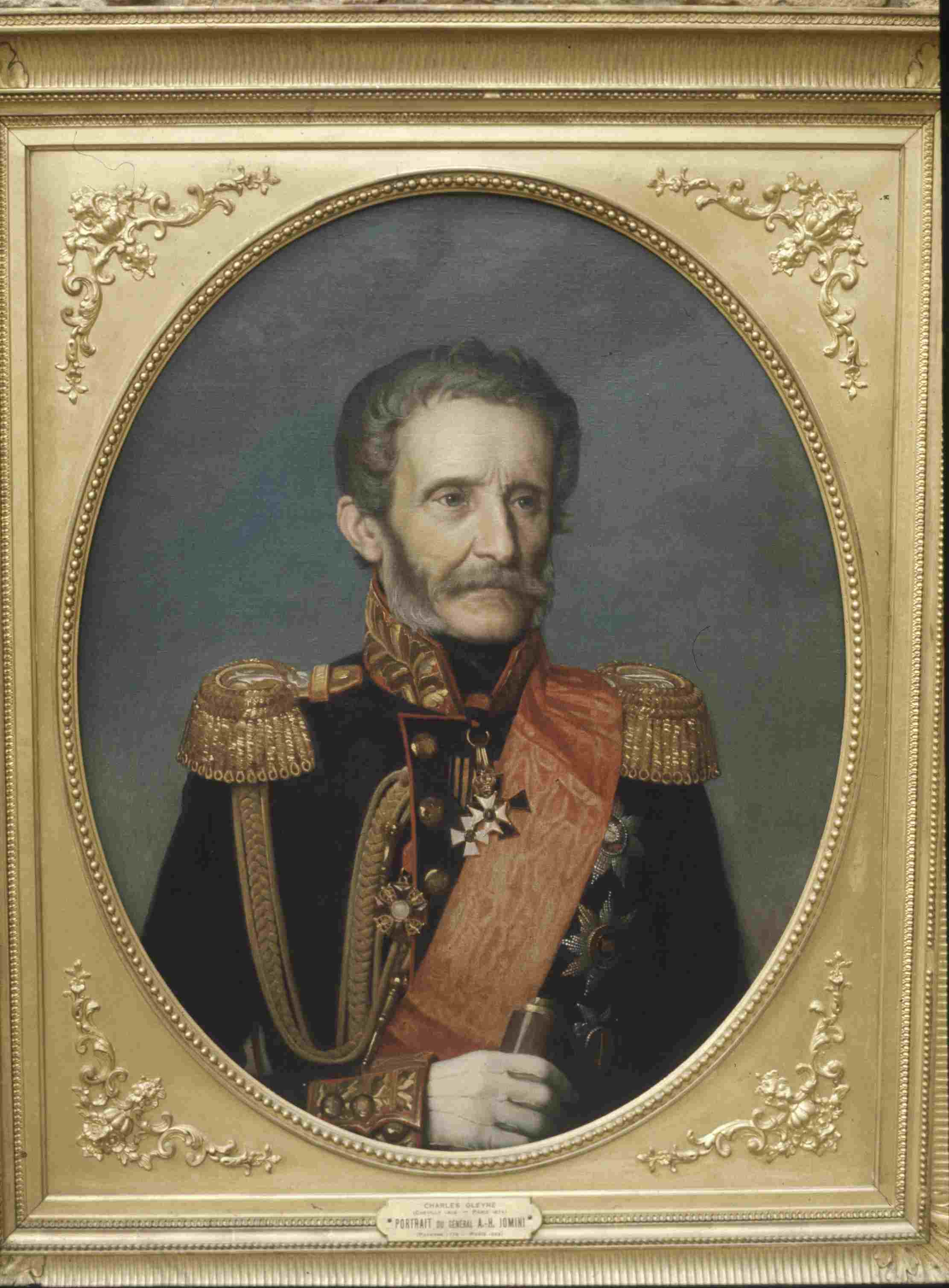Antoine-Henri Jomini was born into a bourgeois family of solicitors and local governors on March 6th, 1779 in Payerne, a small town in Switzerland’s French-speaking Vaud Canton. His father sent him to Basel after a short period of business studies, where Jomini worked in a banking house. Although working there bored him to death he still managed to learn German, which turned out to be a precious asset for his future career. He proved to be remarkably at ease with numbers and after leaving Basel, he moved on to work for a bank in Paris. Jomini went into business on his own because he felt he needed a greater challenge and earned a considerable fortune as a stockbroker.
Both before and during this period spent in Basel and Paris, he felt drawn to the art of war and avidly read of all he could find on the subject. He quickly sought to understand the how and why of every great military victory through the ages and the great military men behind them, such as Frederic II of Prussia. He went on to define the main strategic principles that generate victories. He was also fascinated by Bonaparte’s genius and his victory at Rivoli. In 1798, after having amassed an impressive knowledge of the art of war far beyond his years, Jomini was offered a position with the Helvetic Republic. He served as Secretary to the new Minister of War, Keller, before being promoted to Captain in 1799 and rose to the rank of General in 1800 due to his impeccable service record.
Jomini’s commitment to revolutionary ideals combined with France’s intervention in liberating Vaud forced him to quit his position in Bern. He sought refuge in Paris when leaders of the Ancient Regime returned to power. While he was there, Jomini compiled a summary of set principles for military operations, principles that had never been put forth in any previous publication. He called it the Treatise on Great Tactics and presented it to Murat, who was Governor of Paris at the time, to General Von Der Weid and to d’Oubril, the Russian Ambassador to France. These distinguished characters all summarily turned him away, leading him to rework all the material in the book which eventually became his Treatise on Grand Military Operations.
Jomini met General Ney by coincidence and Ney must have recognised the young man’s talent for the art of war.
He not only subsidised the costs of publishing Jomini’s book, but also gave him a post as Aide-de-Camp during his subsequent military campaign.
Jomini actively participated in various Grande Armée campaigns – including the German, Prussian, Polish and Spanish campaigns – during which time Napoleon made him a Baron. He was assigned to the Emperor’s high command and given the rank of Brigadeer General. Soon after that, the Russian campaign started. Jomini, who was not particularly keen on taking up arms against Alexander, was appointed Governor of Vilnius, followed by a move to the same post in Smolensk. Jomini had the foresight to predict the army’s impending forced retreat and took advantage of his position in Smolensk to explore the Berezina River in order to find potential sites for crossing it. He later saved many men’s lives by building two bridges spanning that body of water.
Ill and exhausted after nearly drowning in the Berezina, Jomini was sent back to Paris. When he returned to Ney’s side three months later, he was appointed Chief of Staff. He played a decisive role at the battles of Lutzen and Bautzen in 1813 while serving under Ney.
A grateful General Ney recommended Jomini be promoted to General of Division, but his recommendation was refused by General Berthier.
Angered by this setback, Jomini jumped on the opportunity to work for Tsar Alexander I. Alexander sent his protégé Alexander Chernyshyov as his messenger to Paris in order to coax Jomini into joining them. Alexander I appointed Jomini to the rank of General of Division, and he then went on to become his aide de camp.
After Napoleon’s defeat, Jomini acted as an advisor at the Congress of Vienna, and worked alongside La Harpe in order to influence the Tsar and safeguard Swiss interests. Alexander’s successor Nicholas I, made him his personal advisor before making him a full General in 1826.
In 1828, Jomini acted as military advisor during the war in Turkey and provided counsel during the Crimean War in 1854 as well. Unfortunately, his advice was either not heeded or followed too late to be worth anything.
When Alexander II became Tsar, he charged his old military tutor Jomini with the task of reforming military instruction in Russia. Jomini then founded the Imperial Military Academy (later renamed Nicholas General Staff Academy) and improved defensive measures at the Empire’s military fortresses. Politics kept him from becoming the Academy’s director and finish reorganising the fortresses.
Alexander I’s protégé Chernyshyov became the Academy’s first director instead.
He retired to his estate at Passy in France and continued to advise Napoleon III during his Italian campaign from there.
Alexander I decorated Jomini with the Order of St. Anne, and Alexander II later bestowed him with the broad ribbon of St. Andrew during the Tsar’s visit to Paris in 1866.
He died in Passy in 1869 at the age of 91 and was buried in Montmartre.
A visionary strategist, Jomini’s works have been taught in great military academies all over the world. His principles continue to influence U.S. military doctrine and the military doctrines of many other nations as well.
Acknowledgements: the author would like to thank Daniel Bosshard, Curator of the Payerne Museum, for his assistance in writing this article.













